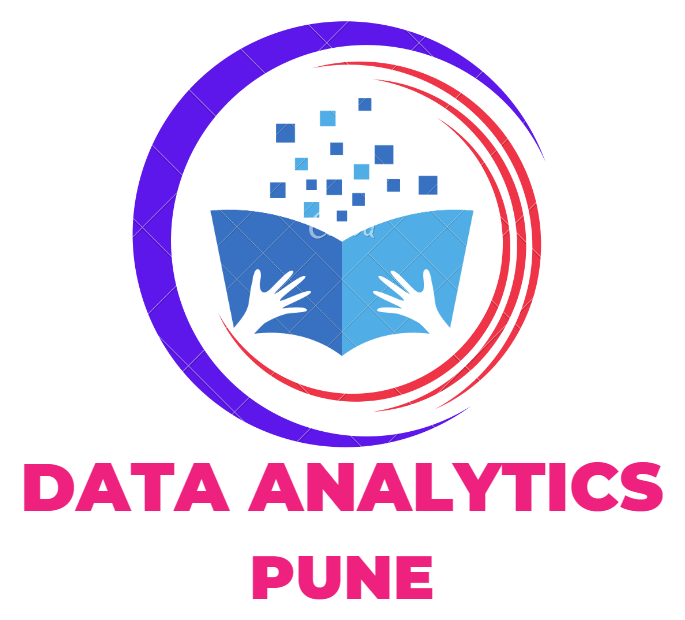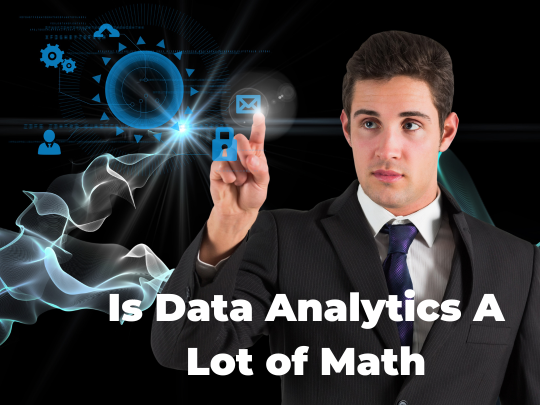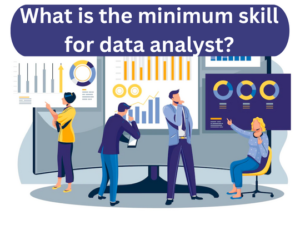One of the most common questions that people ask before taking up data analytics as a career choice is whether it involves dealing with too much math. If you are not too interested in math or didn’t score well in this during your school or college, you are like millions of others reading this. Do you need to be an expert in math to do well in data analytics? Can you still choose this as your career if you are not good at math? Is basic knowledge about a few mathematical concepts enough to become a data analyst? Keep reading to know the answers to these questions and more in the following sections.
The answer is short!
No, data analytics doesn’t involve a lot of math at least in the initial stages. However, you should have some knowledge of the basic mathematical concepts (explained below) used in this field. People may think you may need a lot of math to become a successful data analyst. However, the reality is something else. In a real-world scenario, you don’t actually don’t need too much theoretical knowledge of math.
You should have studied mathematics as one of your subjects in your bachelor’s or master’s degree. It is an added advantage if you have majored in mathematics and statistics, though. The ability to read numbers and present them in a format that helps management take business decisions are some skills that are considered more important for data analysts than being strong in mathematical and statistical concepts.
Fundamental concepts of math you need for data analytics
While you don’t have to be an expert on various advanced mathematical tools & techniques to pursue a career in data analytics, you should be aware of the fundamental concepts in these fields of math to be able to understand your role as a data analyst or data scientist better than before:
- Linear Algebra – Must-know topics include matrices & vectors, basic operations in matrices like multiplication, inversion, transposition, conjugation, and more
- Calculus – differentiation, maxima & minima, single and multi-variable functions, limit & continuity, and partial derivatives
- Statistics – descriptive statistics, inferential statistics, hypothesis testing, probability distribution, and regression analysis
- Differential Equations
- Basic Algebra – Trigonometry, geometry, series & sequences, graphs, sums, inequalities, and functions
Do you wonder where these concepts are applied in data analytics, and why it is important to know the basics of these to start your career in the field of data analytics? The following points will give you explain the reason for the same.
- Having knowledge about linear equations and algebra will teach you three main concepts used regularly in data analytics. They are vectors and spaces, matrix transformations, and alternate coordinate systems. While vectors and spaces teach you to understand the relationship between predicted and actual outcomes of data transformation, matrix transformations teach you to provide a geometrical representation of data in a 2D or 3D format when it is transformed between various vectors. Alternate coordinate systems teach you to appropriately represent data sets in a visual format.
- Knowing about the concept of probability distribution in mathematics (statistics, to be precise) helps you predict different outcomes for a scenario, thereby helping the management to be prepared with different decisions and apply them appropriately as and when the need arises.
- Studying statistics as a specialized course or as a major in your bachelor’s or master’s degree is a huge plus, as it forms the foundation of data analytics. The various concepts you will learn here (like probability, hypothesis testing, regression analysis, sentiment analysis, and so on) will help you in drawing the right inferences from the data and put them in a structure that helps the management to take data-driven decisions at the right time.
Can you be a data analyst if you are not good at math?
Many people want to know if they can be good data analysts even if they are not good at math. If you are one of them, here is some good news for you! Yes, you can definitely become a data analyst without any expertise or interest in math provided you satisfy the following conditions:
- You have a decent knowledge of programming languages like Python, R and SQL
- You know the basics of data visualization tools like Power BI and Tableau and are aware of navigating databases using these tools
- You know the basics of coding with decent knowledge of statistical tools like probability, even in its theoretical aspect
When you possess all the skills mentioned above, you can then spend a couple of months learning the basics of fundamental mathematical tools used in data analytics (like linear algebra, trigonometry, probability and more) before you start a career in this field.
Even if you don’t possess all the detailed mathematical skills that we have explained here, you should have enough knowledge of statistics to be able to get a grasp of your job as a data analyst. Statistics is about numbers anyway; therefore, even if you are not good at math, you should be quick with number-crunching, understanding patterns and drawing relationships among the different variables.
Knowledge of discrete mathematics is a plus
You might be surprised to know that discrete mathematics may play a more important role than traditional mathematics in data analytics. Discrete mathematics is a very important concept in computer programming, and nowadays in data analytics. In this field, you understand more about the time and space complexities involved when a computer runs a program. Some of the concepts of discrete mathematics that you should equip yourself with to become a successful data analyst are:
- Set Theory
- Functions and Growth of Functions
- Properties of Graphs
- Combinatorics and Countability
- Data Structures
You can search for discrete mathematics courses online to hone your skills before enrolling in a data analytics course to earn success in this field quicker than you thought. So, though you don’t have to be an expert in math to pursue a career in data analytics, it is a good idea to catch up on the basic mathematical skills explained here to understand the concepts of data analytics better than before and have an edge over your peers.
Pursue a career in Data Analytics with the number one training institute 360DigiTMG. Enroll in the best Data Analytics Courses in Pune with Placement to start your journey.
Browse Other Courses
- Artificial Intelligence Course in Pune
- Business Analytics Course in Pune
- Cloud Computing Course in pune
- Cyber Security Course in Pune
- Data Analytics Course in Pune
- Digital Marketing Course in pune
- Ethical Hacking Course in Pune
- IoT Certification Course Training in Pune
- Machine Learning Course in Pune
- PMP® Certificate Course in Pune
- Python Course in Pune
- Tableau Course in Pune
Navigate to Address:
360DigiTMG – Data Analytics, Data Science Course Training in Pune
No. 408, 4th Floor Saarrthi Success Square, near Maharshi Karve Statue, opp. Hotel Sheetal, Kothrud, Pune, Maharashtra 411038
089995 92875
Get Directions: Data Science Course Certification




